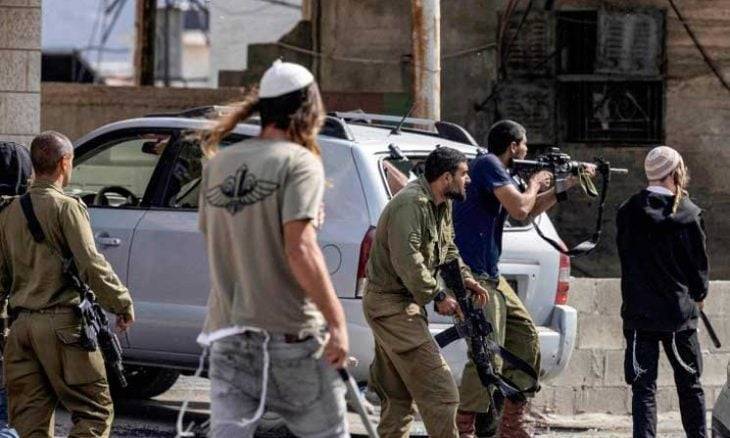The residents of the Palestinian town of Hawara in the occupied West Bank are suffering from the increasing attacks by Israeli settlers, instilling fear in their hearts about going to school, work, or even the local market. In recent years, the violence between Palestinians and Israelis in Hawara, located near a checkpoint on a highway connecting the cities of Ramallah and Nablus and linking four nearby Israeli settlements, has escalated.
Ghazzi Shahada, a 58-year-old glass worker, shared while repairing glass in one of dozens of homes that have been vandalized: "I have lived in Hawara my entire life... These attacks are not new, but they have become more intense." He added, "I want to walk without fear. I want to enjoy a trip outside the town. I can’t do that anymore. The settlers will throw stones at us or shoot at us. We no longer dare to leave because the settlers are present in the streets." The UN Office for the Coordination of Humanitarian Affairs recorded 849 attacks by settlers last year, resulting in casualties or property damage throughout the West Bank, the highest number reported since monitoring began in 2005.
The situation gained international attention after hundreds of settlers attacked Hawara on February 26 in response to gunfire by Hamas targeting two Israeli brothers from the nearby Har Bracha settlement while they were sitting in their car. A Palestinian was killed during the rioting, and settlers set fire to dozens of homes and vehicles. A police source announced the arrest of 15 settlers, but most were released due to insufficient evidence, while two remain under administrative detention as investigations continue.
Parties in Prime Minister Benjamin Netanyahu's government criticized the violence and called on Israelis to abide by the law to achieve justice. A senior military leader described the acts of violence as a "massacre." However, days after the attack, right-wing Finance Minister Bezalel Smotrich, responsible for some aspects of Israel's governance in the West Bank, stated that Hawara should be "erased," before retracting his statement.
For their part, settlers consider Hawara a "terrorist village." Nati Rome, a lawyer for the suspects detained after the attack, indicated that settlers face ongoing violence from Palestinians who throw stones at their vehicles and incite violence through social media and speeches in mosques. Surrounding Hawara, settlements sever the ties of Palestinian communities and alienate them from their lands. The situation oscillates between violence and periods of relative calm when Israelis patronize Palestinian businesses in the town for cheap goods or to change tires.
Signs written in both Arabic and Hebrew line the main road, where charred walls and piles of shattered glass can also be seen. Soldiers stand behind barricades, aiming their weapons at passing vehicles bearing Israeli and Palestinian license plates. Kayed Awad, a member of the Hawara municipality and owner of a bathroom supplies store, commented, "We live in constant anxiety," while glancing at the screen above his desk showing footage from security cameras. Awad stated that he survived a settler attack last year when young men broke the glass door of his store, smashed sinks, and beat him with sticks and pipes.
Palestinians claim such attacks are part of their daily lives, but they have intensified due to the lack of intervention by the forces to stop them or their involvement in the attacks themselves. International bodies have expressed concerns about the effectiveness of police responses to settler attacks long before the current escalation. The UN Office for the Coordination of Humanitarian Affairs stated in a report in January: "Some settler attacks occur in the presence of Israeli forces or with their support." According to the Israeli human rights organization Yesh Din, 93% of investigations related to settler violence in the West Bank between 2005 and 2022 were closed without charges being filed.




